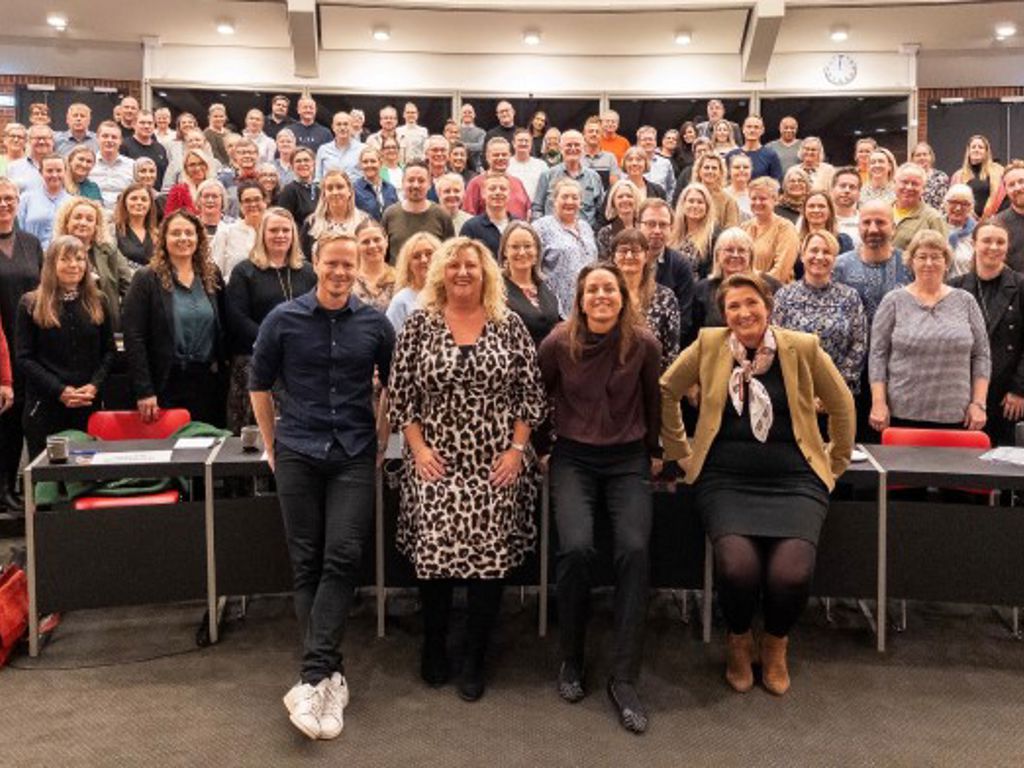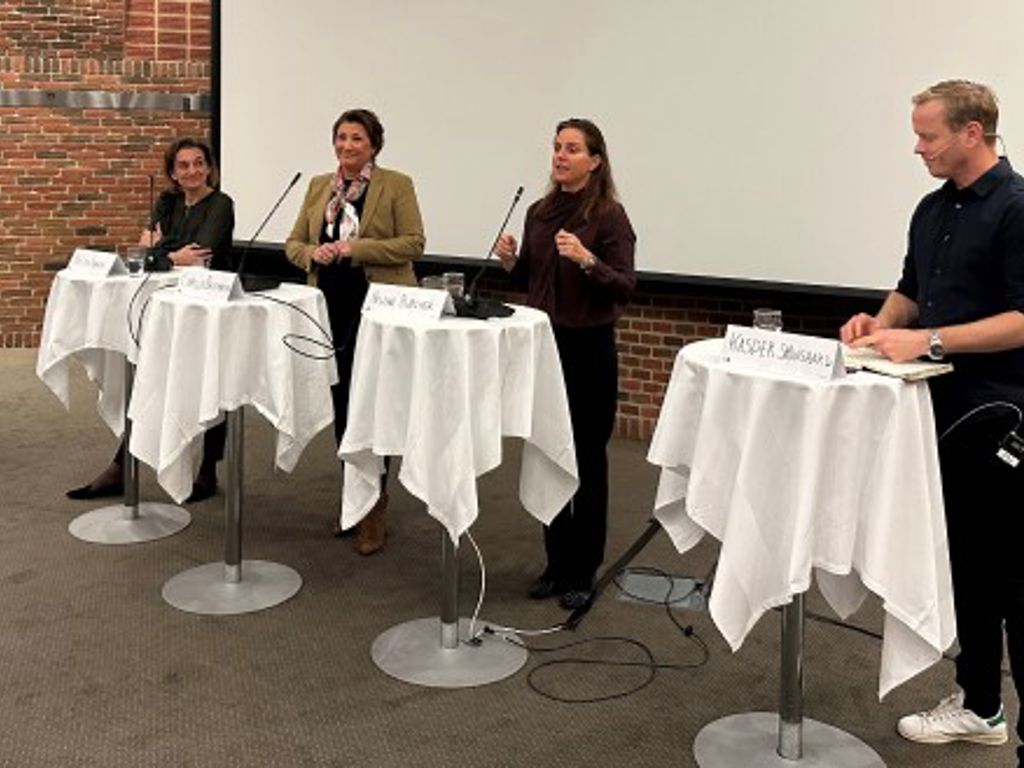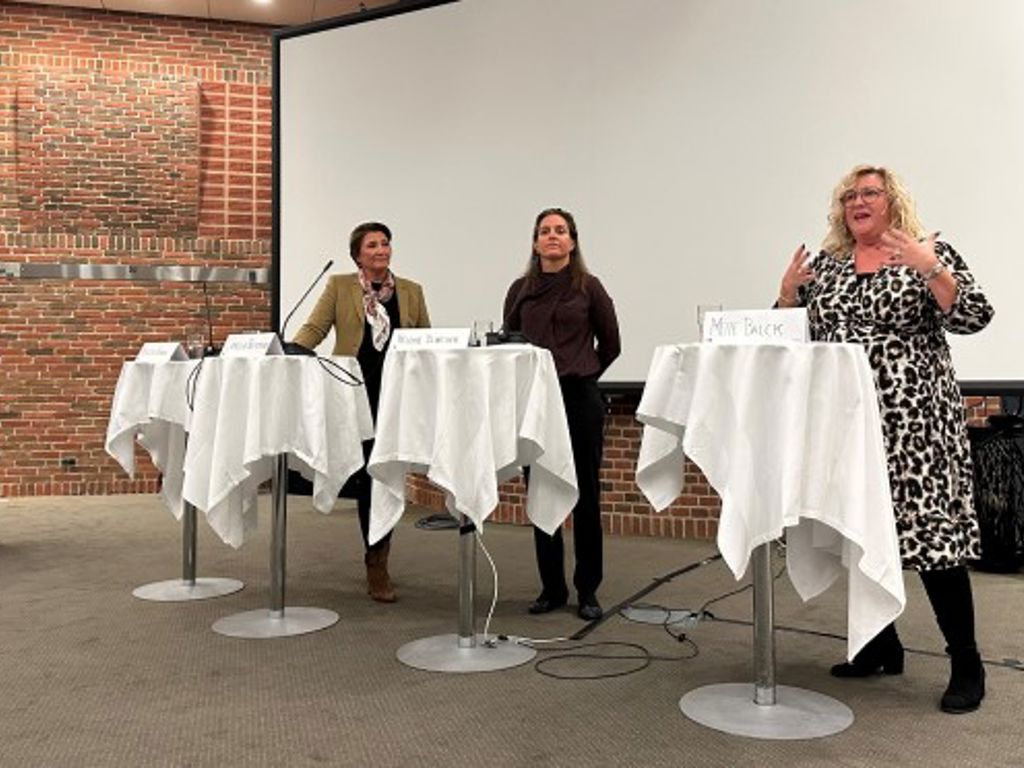Employee satisfaction is more than ticking boxes on a chart
From clothing crisis via trust to data ethics. The topics were diverse and the debate lively when Nordea’s management met the union and working environment representatives from Finansforbundet in Nordea at a seminar in Roskilde
Dialogue is the panacea of our time. Finansforbundet in Nordea's union and working environment representatives know this, as they have a close dialogue with the local management on a daily basis to ensure the best conditions in their individual teams. At the annual seminar for union and working environment representatives, it is the tradition that they can bring topics from their colleagues and discuss them with representatives of Nordea's top management in Denmark.
"In Finansforbundet in Nordea, we are always grateful that Nordea's management is willing to debate with the elected representatives. Dialogue is the best method for continuously developing and improving Nordea as a workplace. Union representatives often hear about the proposals for improvements that Nordea colleagues express in their everyday lives. In a debate with the management, they become the voice of their colleagues," says Finansforbundet in Nordea's new president Kasper Skovgaard Pedersen.
He emphasizes that it is important to listen and be curious about each other's points of view in order to make things a little bit better every day:
"In a good relationship, you even dare to have a dialogue about the conditions that are not optimal."
In the two-hour dialogue with the management, there was room for principled discussions of overall themes such as psychological safety and data ethics, but also very concrete experiences of how different clothing styles can challenge self-confidence.


Sneakers or not
"On a daily basis, I work in Høje Taastrup, but once in a while I have to go into the head office in Metro - this always triggers a clothing crisis. There is a split between the two offices. I feel like someone is looking down on me in Metro. For example, I don't dare to wear sneakers," a union representative said.
The question of clothing crises before arriving at the head office in Amager came up when it was discussed how Nordea can become a workplace with room for everyone.
Helene Bløcher, Head of Business Banking Denmark, knew the problem well:
“It took me a year and a half to figure out about the clothes. I am surrounded by men in suits. But if you let me know the next time you come to Metro, I'll put on sneakers too – and we'll do it together.”
Camilla Beckmann, newly appointed Head of Nordea 24/7 Denmark, but with over 30 years of experience in the bank, was not shy about lacing up her sneakers at work:
"I've been hammering around in sneakers in there, because there are a lot of stairs, and you get around faster now than in high heels."
Use of employee data
Another topic on which there were strong opinions was the collection and use of employee data. Several expressed the need for more transparency in Nordea's Code of Conduct - the guidelines for accountability and good practice in the company.
Among other things, there is uncertainty in relation to how data is used - for example in relation to employees' use of mobile phones, it emerged.
There were also other curious questions, i.e. about how long issued warnings are stored in the system.
Camilla Beckmann emphasized that dealing with employee data is something -Nordea takes very seriously:
"We have a very strong focus on data ethics. We cannot completely avoid mistakes, we are only human. But when that happens, we have processes and can stop the fire.”
The debate focused more specifically on the recording of how often employees physically come into the offices, by looking at data from the head offices' speed gates. Newly appointed Head of People in Denmark, Lotte Schiffer, stated:
"We do not look into data on the individual employee who comes in. We have a responsibility as a company to register and use data correctly, and we naturally live up to that responsibility.”
More involving culture
The guidelines stated in Nordea's Code of Conduct help to facilitate that employees and management can talk about what is good and bad. This was pointed out by Kirsten Renner, Head of Technology and Chief Information Officer.
“When a mistake is made, we can have a dialogue about it. In that way, we can try to turn it into something positive," she said and told that she is working on making the culture in Technology more involving for the employees.
Unrealized potential in People Pulse
And in fact, more dialogue between employees and management was requested by the union and working environment representatives. A large part of the dialogue was about the People Pulse survey.
Several implied that the surveys may not be valid because in some cases the answers are based on what management wants to hear.
"Do the questions add value at all - we must always dare to ask ourselves that question. I think it is crucial that People Pulse is meaningful for both managers and employees," said Mette Balck Mejlby, vice president of Finansforbundet in Nordea.
She asked the union and working environment representatives in the room to mark with their fingers how much they think the employee survey makes sense, on a scale up to ten. With everything from a few fingers to two full hands, the participants showed that the benefits certainly could raise.


Kasper Skovgaard Pedersen acknowledged the results of People Pulse, but at the same time felt that the process surrounding the employee surveys has unfulfilled potential:
"It is not always easy to get the dialogue going after having ticked off in a form. We can do better.”
Intense work pressure
A union representative reflected that in the vast majority of the time she is satisfied with being employed by Nordea. That is why she greatly appreciates participating in a dialogue with the management with the possibility to discuss things that can be improved.
It was also discussed why employees leave Nordea - and why the company is below Danske Bank on the list of attractive workplaces for Danes with a higher economic education (no. 17 and no. 22, respectively).
The managers believed that employee turnover in itself need not be bad:
"We don't have to be so afraid of people leaving us. They often come back with new skills and experiences from outside," said Helene Bløcher.
Some union representatives had their own ideas on what could influence the desire to leave Nordea. For example, too much work pressure and too few employee benefits. One also told about a colleague who had struggled to get an HD education (Graduate Diploma in Business Administration) paid for:
"He was told again and again that there was no budget for it. But we hear all the time that we make a lot of money. In the branches, I don't always see the investment in employees, in contrary to what is signalled."
Camilla Beckmann pointed out that an HD might not always be what was interesting for Nordea to contribute to, and that the bank spends a lot of money on training via Finanskompetencepuljen (The Financial Skills Development Pool).
"We invest in employees, but must do so in a way that makes sense."
The union and working environment representatives were encouraged to pass on the fact that as an employee you must make sure you are transparent about your career dreams at Nordea and have a dialogue with your manager about it.
4 themes
The management dialogue was divided into 4 themes:
- Nordea – why join and why stay?
- Code of Conduct and other internal rules – how do we work with them?
- Psychological security
- Room for everyone – the individual, the community and the company
Also read our first article from the seminar for union and working environment representatives:





